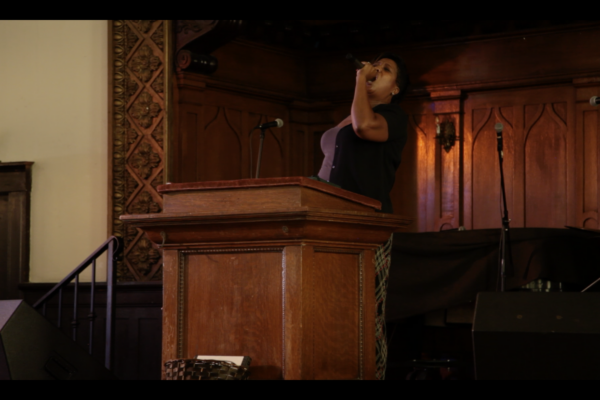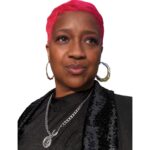If you were anywhere near a radio, TV to catch the news this past week, you know that July 5-8 was a difficult and emotionally charged week. We saw footage of not one, not two, but seven citizens recorded killings on video and replayed on seemingly every media outlet possible. Alton Sterling was killed on Tuesday night. Philando Castile on Wednesday night. And five Dallas police on Thursday night. It was a rough week in America.
With so much heartache, anger, frustration and sadness, Saturday was filled with pressure and much prayer for many clergy across the nation. What can you say about this carnage? Even President Barack Obama was reportedly up late with scripture on Monday night, trying to figure out how to address the nation at the Dallas Memorial.
Racism, systematic racism, police brutality, #BlackLivesMatter, #BlueLivesMatter, injustice were on the tongues of millions of people across the nation. I even saw a post from Ghana, imploring black people in America, “Come back home!” It was funny, but serious. And at times, I considered a few options: Kingdom of Lesotho, Senegal and even Iceland! The ambient threat, as I wrote last Friday, was feeling all to real and too close to home.
Regardless of the great criticism the Christian faith has endured in the past decade and questions around its relevance or ability to reach “dones” and “nones,” many people STILL want to hear the church speak. There is a need for interpretation of the things we experience, beyond what we see with the naked Eye. We see the violence, the anger, the divide, but the soul of people still longs for the church to give some meaning to it all—to translate it into something meaningful—so that seven people didn’t just die, and that’s it.
Social media was filled with a variety of what pastor’s should preach on Sunday, July 10. There was even a hashtag for #what2preach. Rev. Wil Gafney started #what2preach as a Twitter chat after Sandy Hook. Check out her blog post from Friday “#what2preach when blood is running in the streets.”
After spending those four days in prayer, my heart was settled on beginning a series entitled, “Nap Time Is Over!”
I understand and interpret these major moments as opportunities for awakening. And in context of the dominant narrative around race, police brutality, #BlackLivesMatter, we have had several eye opening moments. #TrayvonMartin, #MikeBrown, #EzelFord, #TamirRice, #FreddieGray, #SandraBland and now #AltonSterling and #PhilandoCastile and the #DallasShooting. We are awake!
The first installment to this series focused on prayer. On Sunday, I preached about the power of prayer to help connect us to what God is saying, doing and moving; the power of prayer to help us move thru the process of healing, deliverance and change; and the power of prayer to overcome evil.
In the following weeks we’ll look at the story of Zelophehad’s daughters, and the need to speak truth to power in an effort to shift policy; followed by a message on Jesus our radical savior.
Last week, I also re-posted a list of next steps people can engage collectively and individually, after prayer, that include steps like Voter Registration, Host Community groups/forums/google hangouts on race and policing, and even run for local political office.
Some regard prayer as weak excuse to do nothing, but I argue, along with the text (Isaiah 62:6-7) that prayer is the first step that helps guide us faithfully and fearlessly toward doing something real, because we cannot remain asleep. Nap time IS over!
Rev. Najuma Smith is Assistant Director of Community and Public Engagement with the USC Center for Religion and Civic Culture.





